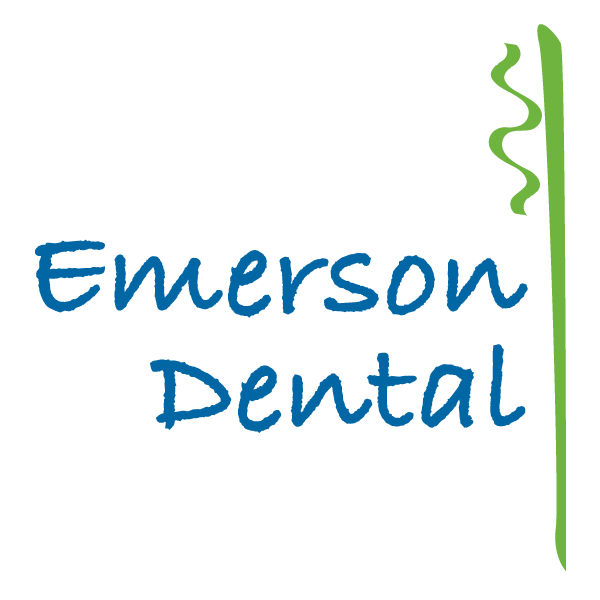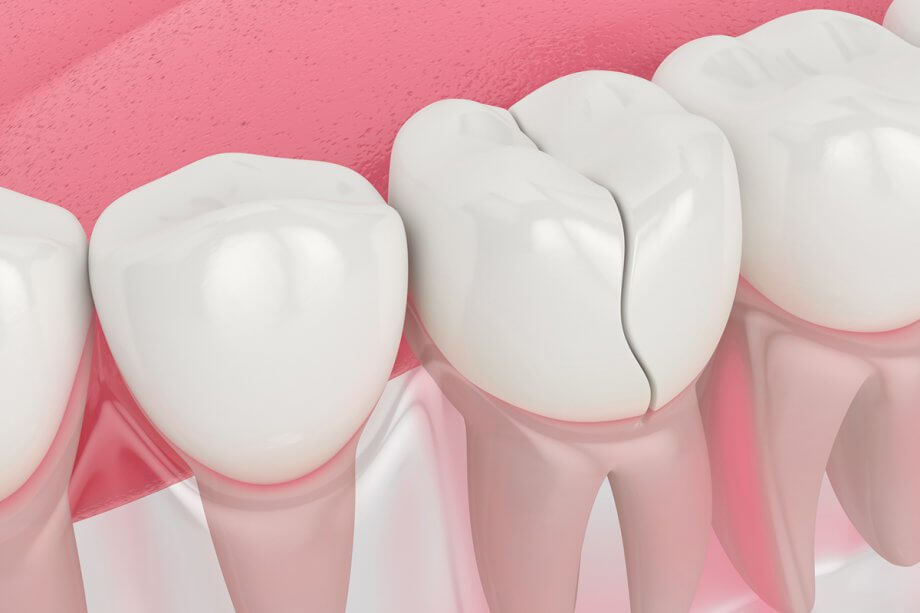A cracked tooth is a common occurrence. It can happen at any time due to a variety of causes from teeth grinding to biting down on something hard. If you have a cracked tooth, you may be wondering if it requires treatment or if it can heal on its own. Here’s what you need to know.
Types of Cracked Teeth
Teeth can crack in a variety of ways, and the type of crack may determine how it is treated.
- Craze lines. These are tiny hair-thin cracks that develop in the surface level of the tooth enamel. They do not require treatment.
- Cracked tooth. A traditional cracked tooth occurs in the crown, the visible portion of the tooth. With treatment, the tooth can usually be restored.
- Fractured cusp. When a small portion of a tooth breaks off it is considered a fractured cusp. In many cases a fractured tooth can be saved.
- Split tooth. A severe crack may split the tooth in half, potentially separating the two halves. In most cases a split tooth cannot be saved.
- Vertical root fracture. When the crack begins in the root of the tooth under the gums it most likely cannot be saved.
Cracked Teeth Require Treatment
A cracked tooth is not capable of healing on its own. Tooth enamel doesn’t regenerate, meaning the tooth will need to be reinforced with composite material or a dental crown. In many cases a root canal will also be needed to treat or prevent infection.
In some cases a cracked tooth is too damaged to be saved. In such cases it will need to be extracted and replaced with a dental prosthetic, such as a bridge or dental implants.
Endodontic Treatment for Cracked Teeth
A cracked tooth is highly susceptible to infection. This is because saliva containing bacteria can seep into the crack and infect the dental pulp, the soft tissue at the center of each tooth. The treatment for an infected or at-risk tooth is a root canal, which is an endodontic procedure. Endodontics is the field of dentistry that focuses on treating teeth from the inside where the dental pulp resides.
Preventing Cracked Teeth
There are ways to reduce your risk of cracked teeth:
- Wear a mouthguard at night if you grind your teeth.
- Wear a sports mouthguard if you play any low or high contact sports.
- Take good care of your teeth.
- Go to the dentist regularly.
- Avoid biting or chewing non-food items or opening things with your teeth.
Frequently Asked Questions About Cracked Teeth
How long can you put off getting a cracked tooth treated?
It is best to seek treatment for a cracked tooth right away, as soon as you are aware of it. The sooner the tooth is treated, the better the chances that it can be saved. You can also avoid a painful infection by going to the dentist as soon as possible.
Does a cracked tooth always need a crown?
In most cases the best treatment for a cracked tooth is a crown. This is because the cracked portion of the tooth can be completely removed so that it can’t spread or worsen. The crown protects the remaining tooth material, allowing the natural root to remain in place.
Where to Seek Treatment for a Cracked Tooth
If you have a cracked tooth, Emerson Dental provides the necessary endodontic services for restoration or replacement. To learn more, contact us today and schedule an appointment.

